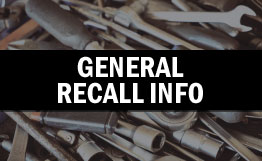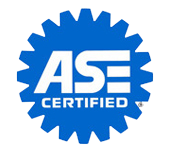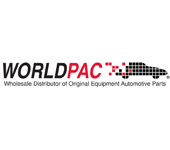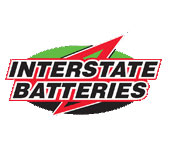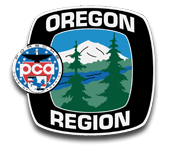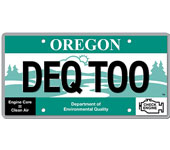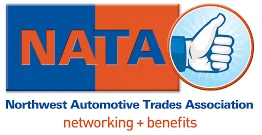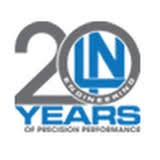
The classic "tune-up" was once the heart of the automotive business and
contrary to some beliefs, today's modern vehicles still need tune-ups to
keep them performing at the most efficient levels.
As the pace of technology quickened, the procedures required to perform a
traditional tune-up changed dramatically. Highly sophisticated ignition and
fuel systems are now the norm, using one or more onboard computers to
control critical engine and transmission management functions.
If the vehicle isn't being properly maintained, you're not going to get
where you want to go. As part of the 21st Century Tune-up on today's modern
vehicles, the following systems should be inspected: battery, charging and
starting engine, mechanical powertrain control (including onboard diagnostic
checks), fuel ignition, and emissions.
To help ensure good performance, fuel economy and emissions, the Car Care
Council also recommends that motorists take the time necessary to become
familiar with their vehicle. Study the owner's manual to become thoroughly
acquainted with the operation of all systems. Pay special attention to the
indicator lights and instruments.
Getting Your Vehicle Ready for Winter
Mechanical failure - an inconvenience anytime it occurs - can be deadly in
the winter. Preventive maintenance is a must. A well-maintained vehicle is
more enjoyable to drive, lasts longer, and could command a higher resale
price.
Some of the following tips can be performed by any do-it-yourselfer; others
require the skilled hands of a professional auto technician.
Engine Performance - Get engine driveability problems (hard starts,
rough idling, stalling, diminished power, etc.) corrected at a good repair
shop. Cold weather makes existing problems worse. Replace dirty filters -
air, fuel, etc.
Fuel - Put a bottle of fuel de-icer in your tank once a month to help
keep moisture from freezing in the fuel line. Note that a full gas tank
helps keep moisture from forming.
Oil - Change your oil and oil filter as specified in your manual -
more often (every 3,000 miles) if your driving is mostly stop-and-go or
consists of frequent short trips.
Cooling Systems - The cooling system should be completely flushed and
refilled about every 24 months. The level, condition, and concentration of
the coolant should be checked periodically. (A 50/50 mix of anti-freeze and
water is usually recommended.) DIYers, never remove the radiator cap until
the engine has thoroughly cooled! The tightness and condition of drive
belts, clamps, and hoses should be checked by a pro.
Windshield Wipers - Replace old blades. If your climate is harsh,
purchase rubber-clad (winter) blades to fight ice build-up. Stock up on
windshield washer solvent - you'll be surprised how much you use. Carry an
ice-scraper.
Heater/Defroster - The heater and defroster must be in good working
condition for passenger comfort and driver visibility. Newer models have a
cabin air filter that should be replaced periodically. Check your owner's
manual for the location and replacement interval.
Battery - The only accurate way to detect a weak battery is with
professional equipment. Routine care: Scrape away corrosion from posts and
cable connections; clean all surfaces; re-tighten all connections. If
battery caps are removable, check fluid level monthly. Avoid contact with
corrosive deposits and battery acid. Wear eye protection and rubber gloves.
Lights - Inspect all lights and bulbs; replace burned out bulbs;
periodically clean road grime from all lenses. To prevent scratching, never
use a dry rag.
Exhaust System - Your vehicle should be placed on a lift and the
exhaust system examined for leaks. The trunk and floor boards should be
inspected for small holes. Exhaust fumes can be deadly.
Tires - Worn tires will be of little use in winter weather. Examine
tires for remaining tread life, uneven wearing, and cupping; check the
sidewalls for cuts and nicks. Check tire pressures once a month. Check the
tires when they are cold, before driving for any distance. Rotate as
recommended. Don't forget your spare, and be sure the jack is in good
condition.
Carry emergency gear - gloves, boots, blankets, flares, a small
shovel, sand or kitty litter, tire chains, and a flash light. Put a few
"high-energy" snacks in your glove box.
Getting Your Vehicle Ready For Summer
Summer's heat, dust, and stop-and-go traffic, will take their toll on your
vehicle. Add the effects of last winter, and you could be poised for a
breakdown. You can lessen the odds of mechanical failure through periodic
maintenance. Your vehicle should last longer and command a higher resale
price, too! Some of the following tips are easy to do; others require a
skilled auto technician.
Air Conditioning - A marginally operating system will fail in hot
weather. Have the system examined by a qualified technician. Newer models
have cabin air filters that clean the air entering the heating and air
conditioning system. Check your owner's manual for location and replacement
interval.
Cooling System - The greatest cause of summer breakdowns is
overheating. The cooling system should be completely flushed and refilled
about every 24 months. The level, condition, and concentration of the
coolant should be checked periodically. (A 50/50 mix of anti-freeze and
water is usually recommended.) DIYers, never remove the radiator cap until
the engine has thoroughly cooled! The tightness and condition of drive
belts, clamps, and hoses should be checked by a pro.
Oil - Change your oil and oil filter as specified in your manual -
more often (every 3,000 miles) if you make frequent short jaunts, extended
trips with lots of luggage, or tow a trailer.
Engine Performance - Replace other filters (air, fuel, PCV, etc.) as
recommended - more often in dusty conditions. Get engine driveability
problems (hard starts, rough idling, stalling, diminished power, etc.)
corrected at a good shop.
Windshield Wipers - A dirty windshield causes eye fatigue and can
pose a safety hazard. Replace worn blades and get plenty of windshield
washer solvent.
Lights - Inspect all lights and bulbs; replace burned out bulbs;
periodically clean dirt and insects from all lenses. To prevent scratching,
never use a dry rag.
Tires - Have your tires rotated about every 5,000 miles. Check tire
pressures once a month; check them while they're cold before driving for any
distance. Don't forget to check your spare as well and be sure the jack is
in good condition. Examine tires for tread life, uneven wearing, and
cupping; check the sidewalls for cuts and nicks. An alignment is
warranted if there's uneven tread wear or if your vehicle pulls to one side.
Brakes - Brakes should be inspected as recommended in your manual, or
sooner if you notice pulsations, grabbing, noises, or longer stopping
distance. Minor brake problems should be corrected promptly.
Battery - Batteries can fail any time of year. The only accurate way
to detect a weak battery is with professional equipment. Routine care:
Scrape away corrosion from posts and cable connections; clean all surfaces;
re-tighten all connections. If battery caps are removable, check the fluid
level monthly. Avoid contact with corrosive deposits and battery acid. Wear
eye protection and rubber gloves.
Emergencies - Carry some basic tools - ask a technician for
suggestions. Also include a first-aid kit, flares, and a flashlight.
Consider buying a cellular phone.
Keeping your vehicle in tune with the environment is definitely a win-win
situation. Besides helping the environment, a properly maintained and
operated vehicle will run more efficiently, will be safer, and will last
longer - up to 50% longer, according to a survey of ASE-certified Master
Auto Technicians.
The following tips should put you on the road to environmentally
conscious car care.
- Keep your engine tuned. A misfiring spark plug can reduce fuel efficiency as much as 30%.
- Follow the service schedules listed in your owner's manual. Replace filters and fluids as recommended.
- Check your tires for proper inflation. Underinflation wastes fuel - your engine has to work harder to push the vehicle.
- Wheels that are out-of-line (as evidenced by uneven tread wear or vehicle pulling) make the engine work harder, too. Properly maintained tires will last longer, meaning fewer scrap tires have to be disposed. Observe speed limits. Mileage decreases sharply above 60 mph.
- Drive gently. Avoid sudden accelerations and jerky stop-and-go's. Use cruise control on open highways to keep your speed as steady as possible.
- Avoid excessive idling. Shut off the engine while waiting for friends and family.
- Today's vehicles are designed to "warm up" fast, so forget about those five-minute warm-ups on cold winter mornings.
- Remove excess items from the vehicle. Less weight means better mileage.
- Store luggage/cargo in the trunk rather than on the roof to reduce air drag.
- Plan trips. Consolidate your daily errands to eliminate unnecessary driving. Try to travel when traffic is light to avoid stop-and-go conditions.
- Join a car pool.
Remember, how your car runs, how you drive it, and how its fluids, old parts, and tires are disposed of all have serious consequences on the environment.
What Is a Maintenance Schedule?
A maintenance schedule is a mileage-based guide that outlines when your car needs routine services like oil changes, fluid checks, and part replacements. Having this information readily available helps you make informed decisions about your vehicle.
A Vehicle Maintenance Schedule for Every Driver
While exact recommendations vary based on your driving habits and vehicle type, most cars follow a pattern of services tied to odometer readings. Here's a general guide of when to expect different maintenance needs:
Every 5,000 miles
- Change the oil and oil filter (if using conventional oil)
- Check and top off fluids (brake, coolant, windshield washer)
- Inspect tires for wear and ensure proper tire pressure
Every 10,000 miles
- Rotate tires to promote even wear
- Replace oil and filter if using synthetic oil
- Inspect the cabin air filter and engine air filter; replace if dirty
Routine Car Maintenance: 30,000-90,000 miles
At 30,000 miles
- Replace engine air filter if not already done
- Inspect fuel system and fuel filter
- Inspect brake pads, hoses, and lines for wear
At 60,000 miles
- Replace spark plugs to keep your engine firing smoothly
- Inspect and potentially replace tires
- Check belts, hoses, and (if applicable) the timing belt - replace as needed to avoid costly damage
At 90,000 miles
- Flush and replace brake fluid
- Inspect and clean battery terminals
- Perform a full mechanical inspection for aging components
Routine Car Maintenance: 100,000 miles and beyond
At 120,000 miles
- Replace O2 sensors and coolant
- Flush the radiator and replace thermostat if needed
- Inspect shocks and struts for wear; replace if driving feels rough
At 180,000 miles
- Replace power steering fluid
- Clean the mass airflow sensor for better fuel efficiency
- Inspect all seals and gaskets, especially around the axles and driveshafts
At 250,000 miles
- Clean or replace fuel injectors to maintain performance
- Inspect the chassis for rust or damage
- Check the catalytic converter and emissions system
Why Should I Follow a Maintenance Schedule?
Following a maintenance schedule ensures that small issues are caught before they turn into expensive repairs. It keeps your car safe to drive, extends the life of major components, and gives you peace of mind on the road.
Where Do I Find My Car's Maintenance Schedule?
The best place to check is your vehicle's owner's manual, which outlines the manufacturer's recommendations for each mileage interval. If you're unsure or can't find your manual, our team at Marque Motors is happy to help.
Just give us a call at 503-293-5386, and we'll guide you on the services your car needs and when to schedule them.
Discover More About General Maintenance Tips At Marque Motors in Portland
Ask The Mechanic
What Our Customers Say
You Guys Kick arse!! Thank for the work you do!! The power from 3K to 5K has improved and it has a quicker response. Great upgrade for the money!! Thaank you!!
Read more >~ S.L.


Marque Motors
7310 South Macadam AvenuePortland, OR 97219
Serving Areas
Marque Motors
7310 South Macadam AvenuePortland, OR 97219

